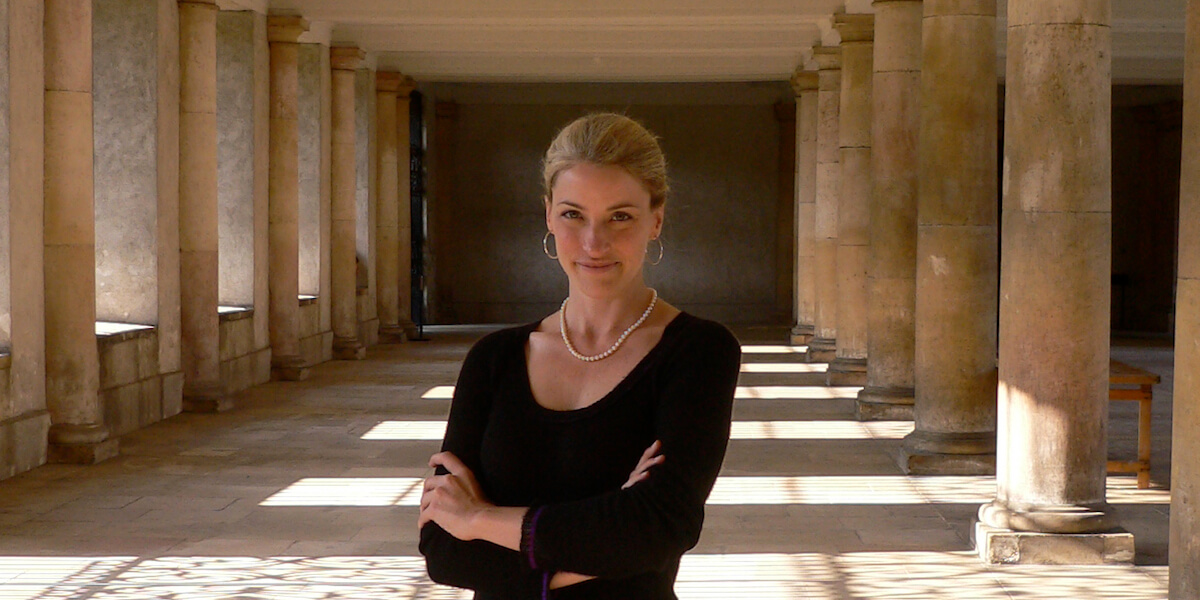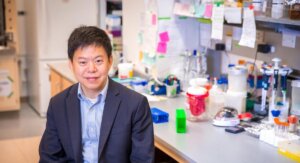
New ISE faculty member Victoria Stodden is an expert in data reproducibility.
Statistician and data science expert Victoria Stodden is taking on a role as a new associate professor in the USC Viterbi Daniel J. Epstein School of Industrial and Systems Engineering.
Stodden’s research focuses on ways of improving processes for transparency and verifiability of computational data inference methods. Stodden comes to USC Viterbi from the School of Information Sciences at the University of Illinois at Urbana-Champaign.
Dean’s Professor of Industrial and Systems Engineering and department chair Maged Dessouky welcomed Stodden to her new role.
“We are extremely pleased to have Victoria join our department,” Dessouky said. “She is a pioneer in the field of data reproducibility and will significantly contribute to our rapid growth in the areas of analytics and data science.”
Stodden’s publications include “The Data Science Life Cycle: A Disciplined Approach to Advancing Data Science as a Science,” Communications of the ACM (2020), “Ambitious Data Science Can Be Painless,” Harvard Data Science Review (2019), “Enhancing Reproducibility for Computational Methods,” Science (2016), and “Reproducing Statistical Results,” Annual Reviews of Statistics and Its Application (2015). She was a member of the National Academies of Sciences, Engineering, and Medicine’s committee that produced the 2019 report “Reproducibility and Replication in Science.”
“As an associate professor, Victoria has compiled an outstanding publication record and has established herself as a leader in the area of computational reproducibility,” said Carl Kesselman, Dean’s Professor in the Department of Industrial and Systems Engineering. “Her work spans statistical inference, big data methods, computational reproducibility, design and implementation of scientific validation systems, and empirical research. She will bring breadth to our analytics and engineering curriculum, and I very much look forward to working with her.”
“I’m thrilled to be joining the ISE faculty. I can’t think of a more exciting place to teach and do research in data science and engineering,” said Stodden. “I am looking forward to joining a community of extraordinary faculty and students who engage deeply in engineering problems and solutions, emphasizing not just research excellence but industry and social impact as well as mentorship of the next generation of scholars.”
Originally from Canada, Stodden describes her academic background as “not typical.” She received her bachelor’s in economics summa cum laude from the University of Ottawa and her MA in economics from the University of British Columbia. Her Ph.D. is in statistics from Stanford University.
It’s here where she started to pursue issues around data-driven policy design, which led her to her degree from Stanford Law School, after which she was a fellow at the Berkman Klein Center at Harvard Law, a postdoctoral scholar at the Sloan School of Management at MIT, and a Postdoctoral Associate in Law and Kauffman Fellow in Law and Innovation at the Information Society Project at Yale Law School.
While at Yale, she won the Access to Knowledge Kaltura prize for her paper “Enabling Reproducible Research: Open Licensing for Scientific Innovation” International Journal of Communications Law and Policy (2009).
In 2013, Stodden spoke about scientific reproducibility before the Congressional House Committee on Science, Space and Technology in its hearings on scientific integrity and transparency.
Published on January 20th, 2021
Last updated on January 20th, 2021













